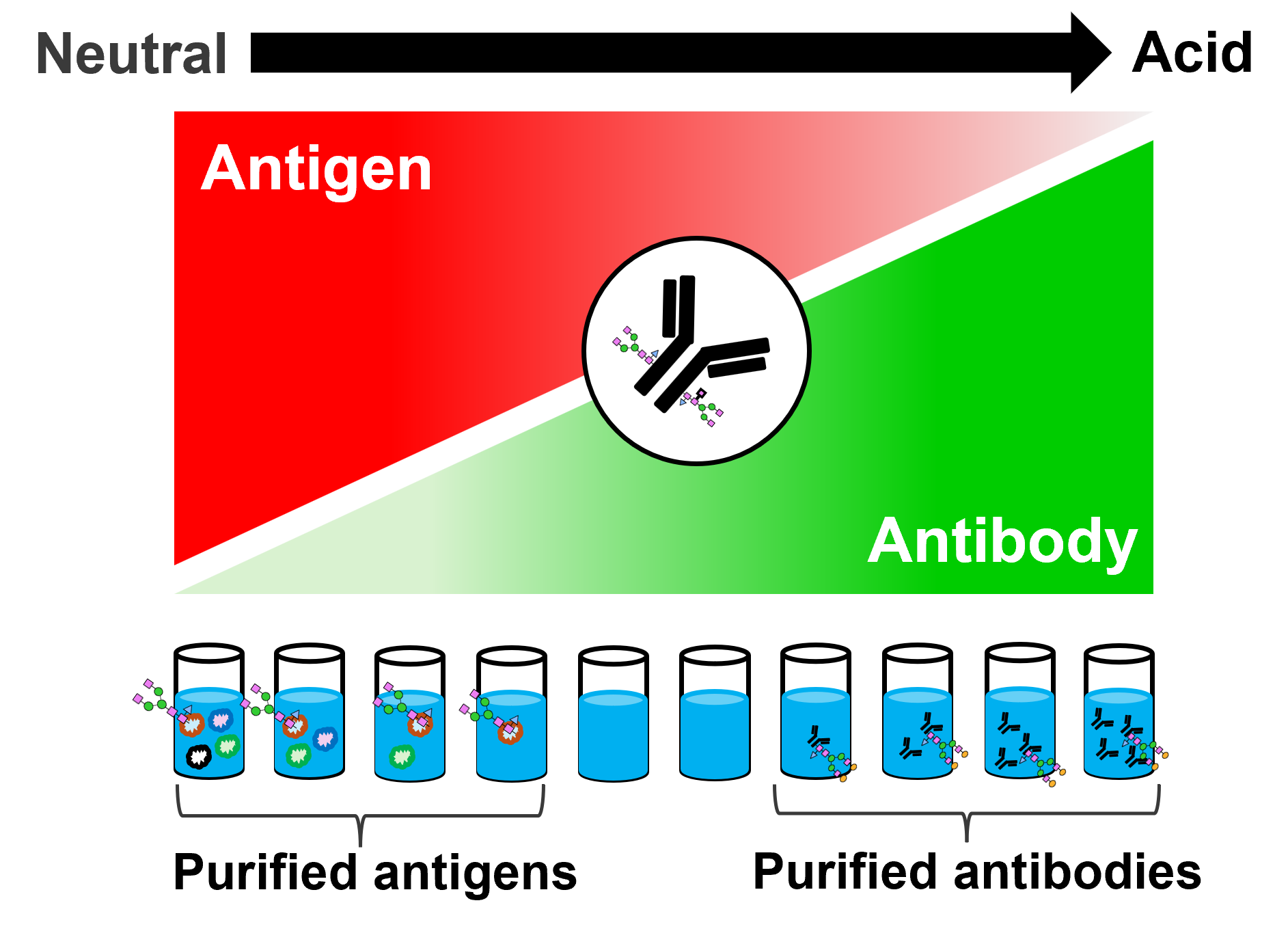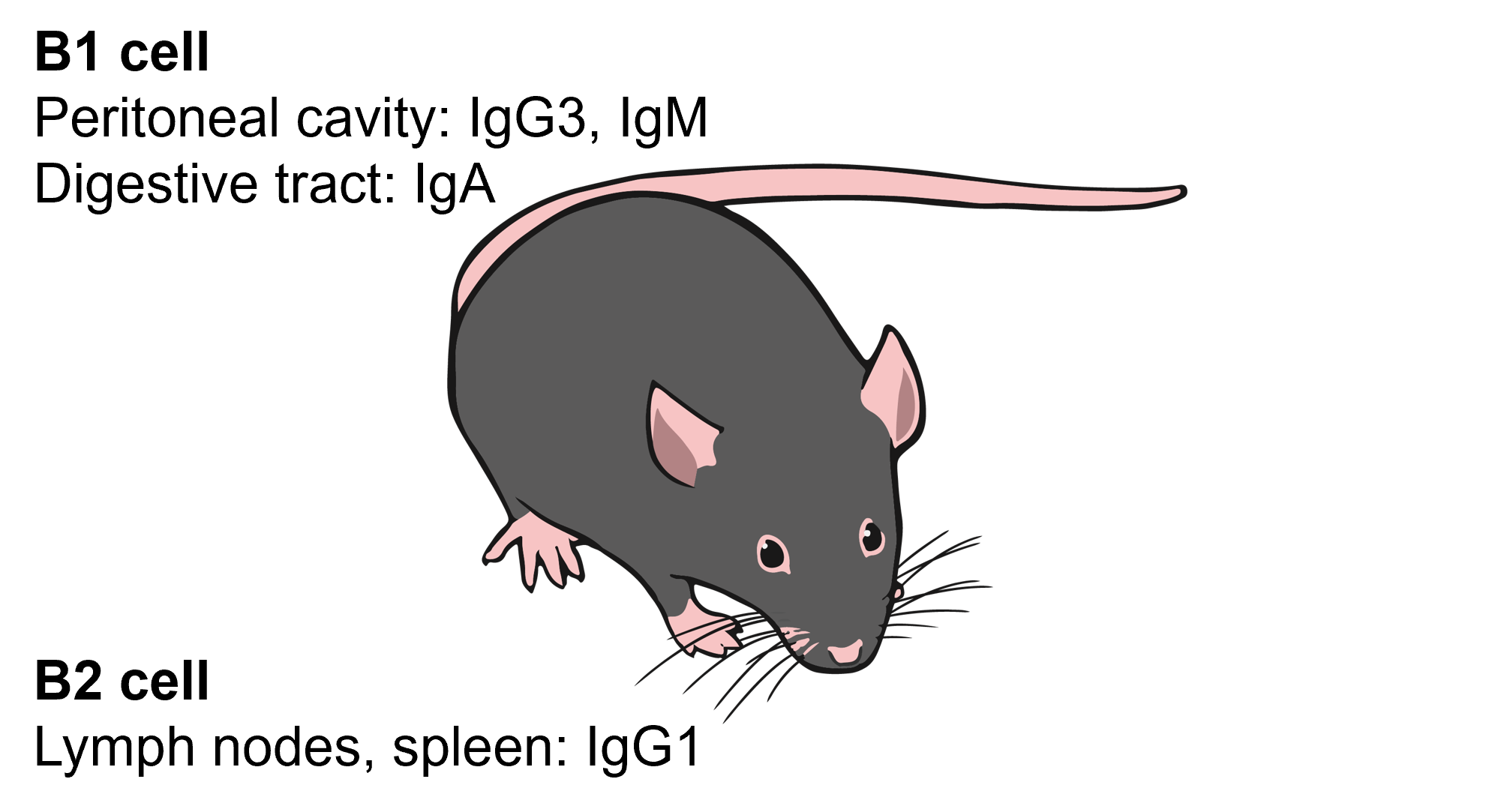Research
Development of analytical technology for antigen-antibody complexes
Our body possesses an intricate immune system designed to combat pathogens such as coronaviruses and other harmful foreign substances, with antibodies (immunoglobulins) playing a pivotal role in humoral immunity. These proteins bind to antigens, forming antigen-antibody complexes crucial for neutralizing pathogens, presenting antigens to other immune cells, and triggering antibody-dependent cellular cytotoxicity. Moreover, antigen-antibody complexes serve as diagnostic markers for diseases involving humoral immunity, including infectious diseases, autoimmune disorders, and so on. Early detection of cancer-specific antibodies in blood correlates with immune cell infiltration into tumors, effectiveness of cancer immunotherapy, and patient prognosis.
Efforts to enrich antigen-antibody complexes from blood and identify their antigens for diagnostic purposes face challenges in removing sample-derived contaminants, limiting highly sensitive detection of antigens. Addressing this bottleneck, we have developed an innovative system for precise fractionation of antigen-antibody complexes and have filed a patent application (Patent Application 2022-152089).
Antibodies exhibit a diversity of approximately one billion types, underscoring the need for advanced analytical techniques to comprehensively understand antigen-antibody reactions. Our research aims to innovate analytical technologies for antigen-antibody complexes by leveraging immunogenomics, specific purification methods for each immunoglobulin type (isotype and subtype), and integrative analysis with the glycoproteome, which modulates antibody functions.

Investigating the spatiotemporal dynamics of antigen-antibody complex formation.
Previous studies on antigen-antibody complexes have predominantly focused on blood samples for their diagnostic potential. However, substantial quantities of antibodies are also secreted in the intestinal tract and abdominal cavity, contributing to local immune responses. Notably, different antibody types are secreted in specific locations: Immunoglobulin G1 predominates in the blood, immunoglobulin A in the intestinal tract, and immunoglobulin G3 or immunoglobulin M in the abdominal cavity, each playing distinct roles in modulating antigen-antibody reactions.
Recent advancements in immunogenomics have highlighted shifts in antibody repertoires associated with aging and autoimmune diseases, particularly within the abdominal cavity. Yet, our understanding of antigen-antibody complexes in the abdominal cavity remains limited at the protein and glycosylation levels. Leveraging our unique analytical techniques alongside animal models, we aim to dissect antigen-antibody complexes over time and space, with a specific focus on elucidating humoral immune responses within the abdominal cavity.

